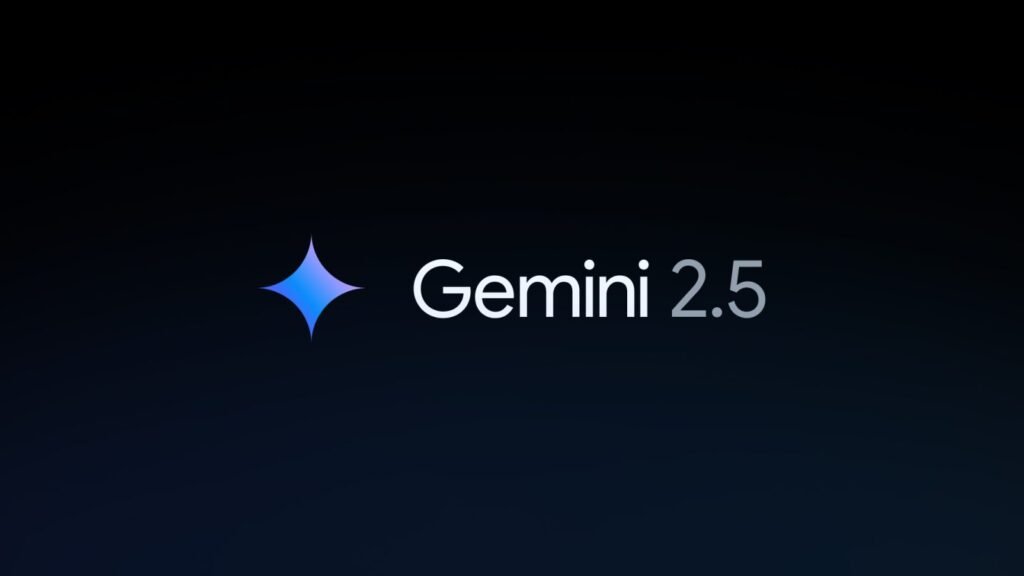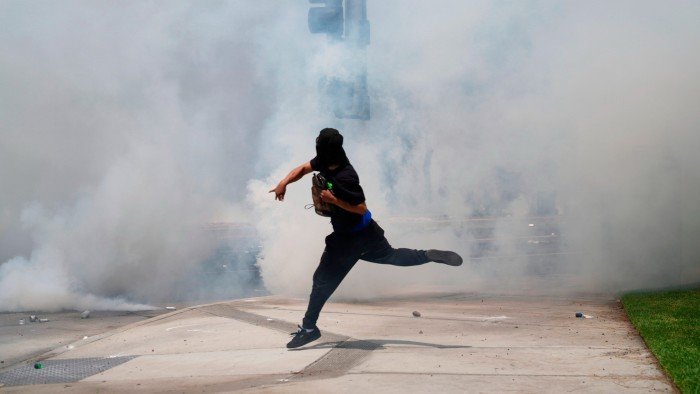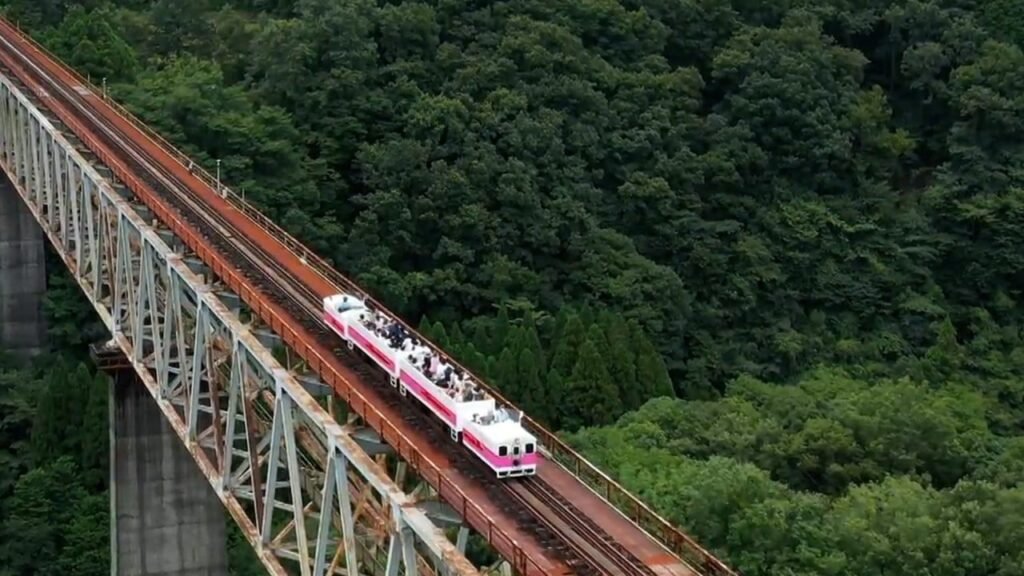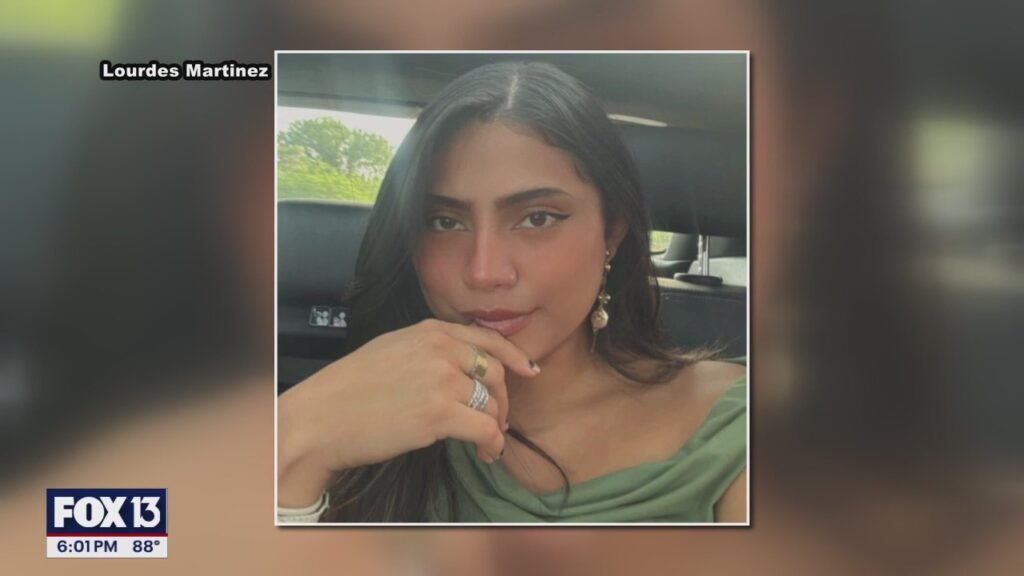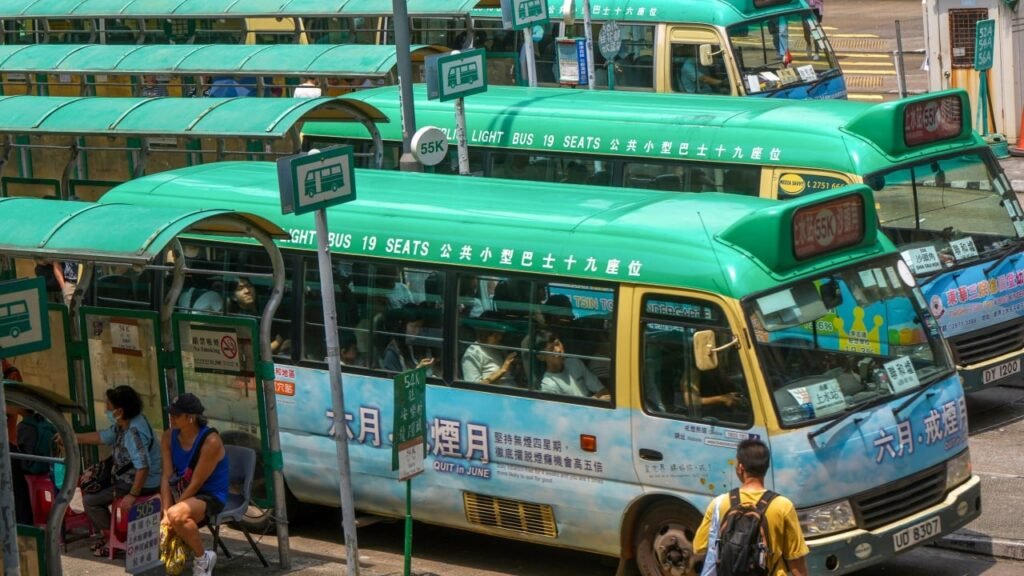
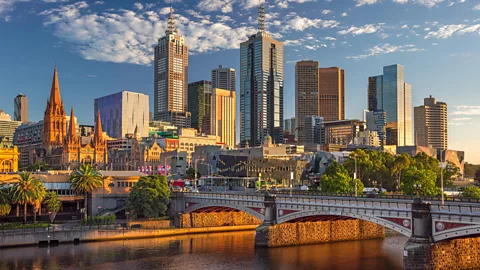 Alamy
AlamyBeyond famous hotspots like Brighton and Berlin, these are some of the most accepting places for LGBTQ+ travellers to visit.
Even though it’s Pride season, it can still be a potentially nerve-racking time for LGBTQ+ travellers. While LGBTQ+ rights and visibility have increased greatly in the last decade, so have some increasingly intimidating threats, as the community continues to battle international customs, legality and cultural norms.
Case in point: in May, the US State Department issued a worldwide travel warning about the “increased potential for foreign terrorist organisation-inspired violence against LGBTQI+ persons and events.” It recommends staying alert in locations “frequented by tourists, including Pride celebrations and venues frequented by LGBTQI+ persons.”
Matthieu Jost, CEO of LGBTQ+ accommodation app misterb&b, which has 1.3 million registered users, advises queer tourists to “travel and stay like a local, particularly in areas you’re not sure about, and get advice from LGBTQ+ residents before you even step foot in a new travel destination.” Even in less LGBTQ+-friendly places, Jost maintains that “LGBTQ+ travellers often aren’t as deterred to visit as you would expect, and that’s likely due to local gay hosts as well as allies within the community itself.”
This list of six LGBTQ+-friendly destinations is based on several sources, including the ILGA-Europe Rainbow Index, which ranks European countries on LGBTQ+ equality; its parent site, ILGA, which compiles global rankings; and Asher Fergusson’s 2023 report on LGBTQ+ travel, which involved 400 hours of research and examines many factors related to LGBTQ+ safety – from protections against discrimination to same-sex marriage – in more than 200 countries.
“It was important for us to cover this topic because it so greatly affects so many travellers,” said Lyric Fergusson, who runs the travel safety site with her partner, Asher. “Unfortunately, the harsh reality is that the majority of the world is still far from safe for LGBTQ+ people. But because laws are always being revised, it’s our mission to update this list at least once a year.”
Here are six LGBTQ+-friendly destinations on five continents proving that despite recent warnings, much of the world remains an open, welcoming place.

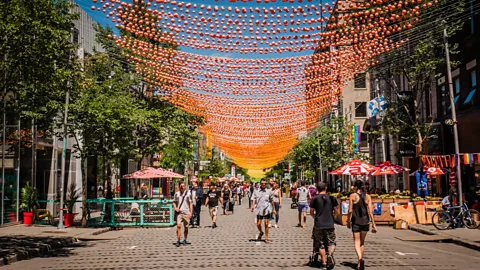 Alamy
AlamyMontreal
Standing proudly at #1 on the Asher Fergusson list is Canada, which decriminalised homosexual acts back in 1969 and same-sex marriage in 2005. While its largest city, Toronto, hosts one the world’s largest Pride celebrations (running through 30 June 2024), Montreal’s queer scene is pioneering: back in 1918, this was where the first-known queer magazine in North America was published, Les Mouches Fantastiques.
The epicentre of the city’s LGBTQ+ scene, The Village, in Ville-Marie, is the province of Quebec’s largest gay neighbourhood. Its main drag, Saint Catherine Street East, is home to a buzzy strip of bars like Le Stud, Aigle Noir and Complexe Sky. Non-binary, queer women and trans visitors should also check out parties such as Elle Lui and Sweet Like Honey.
“The queer community is well-mixed between anglophones and francophones, so I guess some kind of richness comes with having most of our events bilingual,” said Theo Tessier from the Montreal LGBTQ+ Community Centre, established in 1988, whose library, she explained, holds “more than 20,000 books, essays, documentaries and films.” Meanwhile Montreal’s Gay Archives, which is open to the public, contain thousands of books, zines, posters and periodicals.

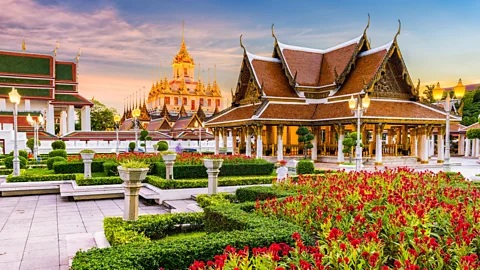 Alamy
AlamyBangkok
Thailand legalised same-sex activity back in 1956 and has laws that ban discrimination over gender identity and sexual orientation. What’s more, the same-sex marriage bill was just passed last week, making Thailand the only South-East Asian country to recognise same-sex unions. However, since same-sex marriages still weren’t legal in 2023, the Asher Fergusson report placed it at #62 on its most recent list.
“And yet, Bangkok is truly one of the most LGBTQ+-friendly destinations in the world” for travellers, said Blue Satittammanoon, founder of White Party Bangkok, an annual event attracting 32,000 attendees from 93 countries. “It’s not only the largest gay dance festival in Asia,” he said, “but also the biggest gay New Year’s Eve in the world.”
For those visiting, Satittammanoon recommended neighbourhoods like Silom, home to venues such as “DJ Station, G Bangkok and The Stranger Bar, plus new clubs like Beef and Rush“. As Satittammanoon said, the key to Bangkok being a “haven for LGBTQ travellers [is] Thailand’s [increasingly] progressive stance on LGBTQ rights, coupled with the warm hospitality that is so deeply ingrained in Thai culture.”

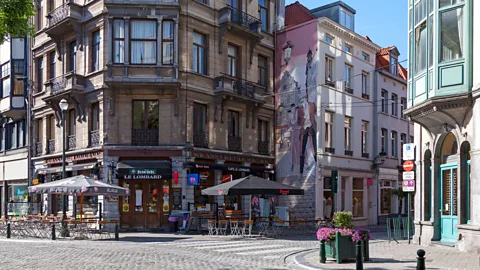 Alamy
AlamyBrussels
Belgium came in at third place on the ILGA-Europe Rainbow Index (after Malta at #1, and Iceland at #2), and #9 on the Asher Fergusson list. Astonishingly, same-sex activity was legalised here in 1795, and it was the second country in the world to legalise same-sex marriage back in 2003, after the Netherlands.
While Brussels is sometimes regarded as a little buttoned-up, locals say its LGBTQ+ scene is second to none. The main hub of its queer scene is located on curving thoroughfare Rue De Marche au Charbon and its surrounding streets. Popular bars include historic spot Le Belgica, trading since the 1980s; Station BXL (which hosts Queer & Sober nights); and quirky bar Homo Erectus, home to drag artist Paula Roid.
“We’re far ahead in terms of LGBTQ+ rights, whether it concerns queer parenthood or trans-identity,” Roid said. “Our queer artistic scene includes Kitsch and Cheap at The Agenda, a must-see non-binary bar, and Playback, which opens the doors of so-called straight places in order to raise awareness of our community.”

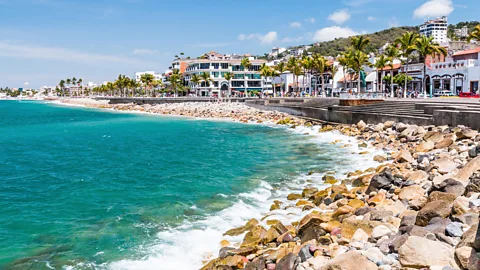 Alamy
AlamyPuerto Vallarta
However, for more than 60 years, the Pacific coast resort town of Puerto Vallarta in the state of Jalisco has been an LGBTQ+ destination. In fact, by some estimates, roughly one-third of all tourists to the so-called “San Francisco of Mexico” are members of the LGBTQ+ community.
As Omar Eduardo Rivera Aguayo of the Mexican LGBTQ+ rights organisation Yaaj said: “In a country with one of the highest rates of hate crimes against the sexual diversity population, Puerto Vallarta stands out in an act of rebellion and acceptance as one of the most LGBTQ+-friendly destinations in the world.” Aguayo recommends the “iconic” cobblestoned gay-bourhood called the Romantic Zone, adding there are “more than 40 bars and hotels exclusive to our diverse community,” including long-running Palm Cabaret, which has hosted tribute shows to queer icons.

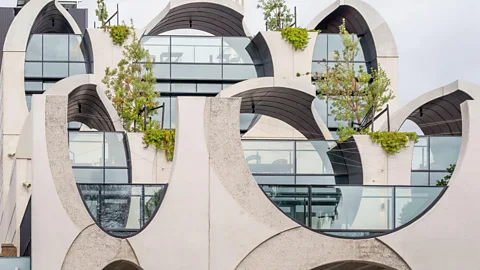 Alamy
AlamyMelbourne
“I like to think Melbourne is so queer-friendly due to how multicultural we are and our diverse backgrounds,” said owner Beca Pressing. “This has helped us form a community that is accepting. We’re not the first lesbian bar, but we are the first lesbian, trans, non-binary and neurodivergent bar: our aim is to create a safe and inclusive space for those who are most disadvantaged in the community.”

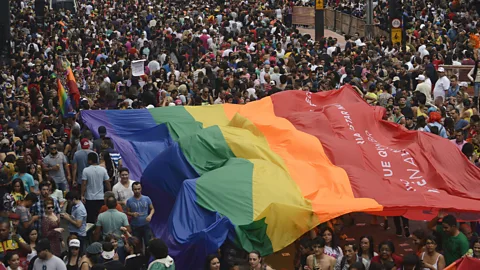 Alamy
AlamySao Paulo
Brazil is listed at #33 on the Asher Ferguson report, due to “the recent increase in violence towards the LGBTQ+ (especially trans community).” Despite this, same-sex couples have enjoyed equal rights since 2013, while in 2019, laws were passed banning discrimination on the basis of sexual orientation and gender identity.
“This physical expansion reflects the expansion of horizons that we aim for,” explained director Carlos Gradim. “It’s the first step in a series of cultural and educational activities, creating important connections and dialogues for society: a sublime moment for us.“


